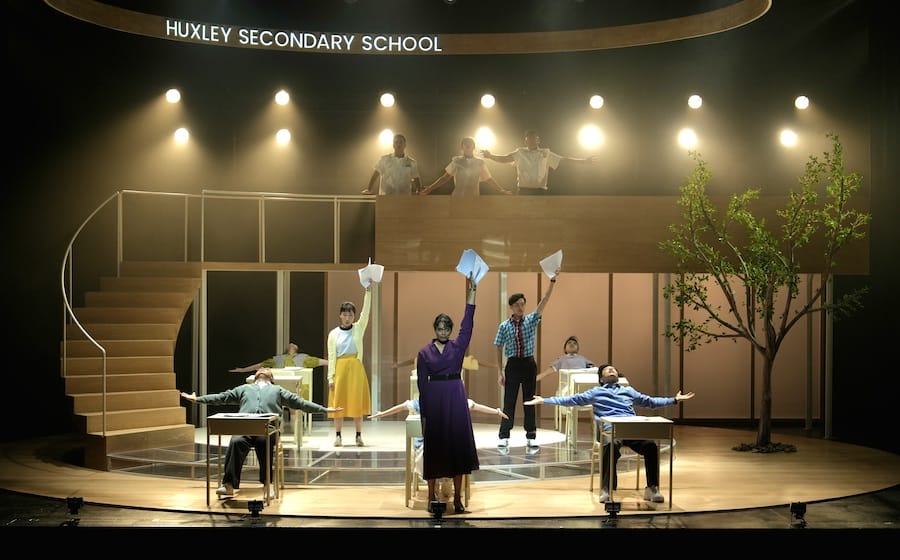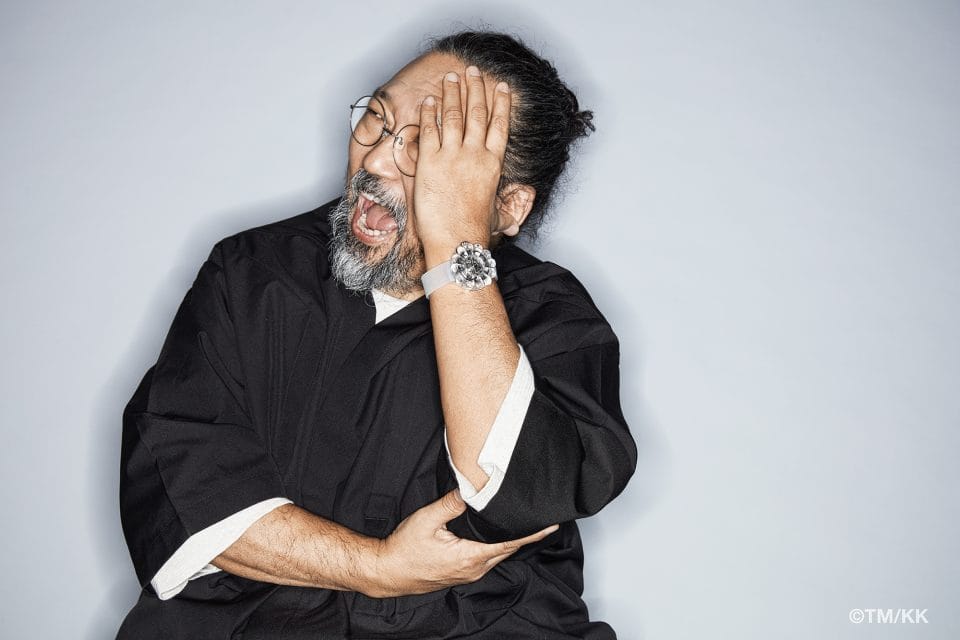 Behind Takashi Murakami’s joyful demeanour is a furrowed brow deep thinker.
Behind Takashi Murakami’s joyful demeanour is a furrowed brow deep thinker.
In the dynamic realm where fine art converges with commercial allure, few artists have made as profound an impact as Takashi Murakami. Renowned for pushing the boundaries between high and popular culture, Murakami’s innovative “Superflat” aesthetic has garnered widespread acclaim and positioned him as one of the most influential and innovative artists of our time. Drawing inspiration from classical Japanese art and merging it with the vibrancy of contemporary Japanese pop culture, Murakami’s work transcends conventional categorisations, standing alongside luminaries like Andy Warhol, Damien Hirst, and Jeff Koons.
At the heart of Murakami’s artistic philosophy is the “Superflat” aesthetic, which fuses traditional Japanese art with the modern influences of manga and anime. Murakami’s formative years were shaped by the juxtaposition of Japan’s narrow residential spaces and the fantastical realms of manga and anime, providing the foundation for his distinctive artistic vision. His work acts as a cultural barometer, exploring the intersections of traditional printmaking techniques and postwar Japanese society, all while infusing subversive undertones and compelling imagery.
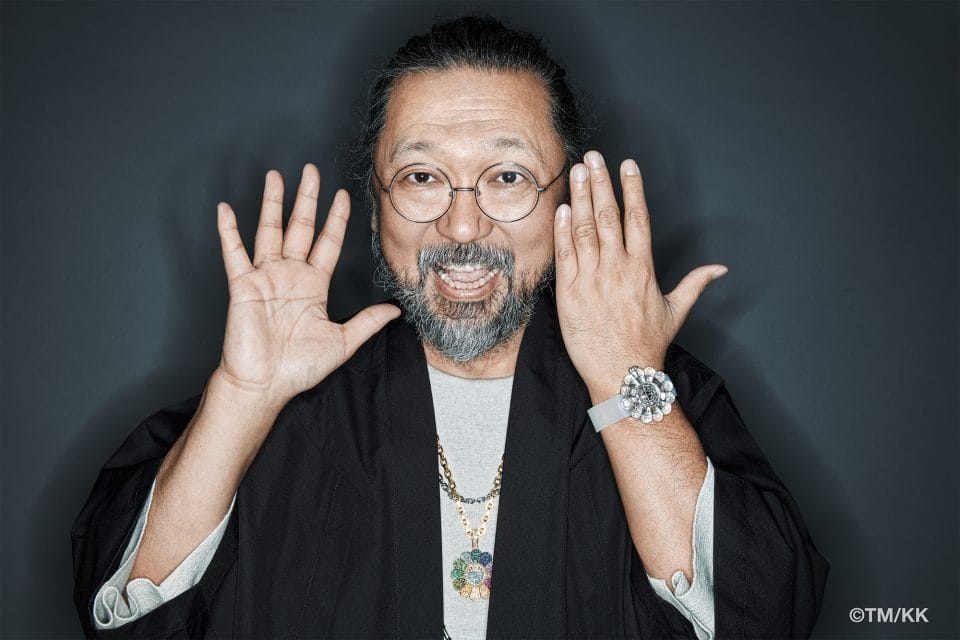 Murakami’s commitment to bridging the gap between art and commerce is exemplified through his founding of Kaikai Kiki Co Ltd. Embracing commerce as a means of artistic expression, Murakami has redefined the role of the artist as a brand ambassador. His collaboration with Louis Vuitton stands as a testament to his pioneering efforts in promoting art beyond traditional gallery spaces, reaching a global audience through everyday commodities. Murakami’s co-creations with Hublot further solidify that notion as we hear from him in the global press conference held in Singapore ahead of the launch of the very special Hublot MP-15 Takashi Murakami Tourbillon Sapphire.
Murakami’s commitment to bridging the gap between art and commerce is exemplified through his founding of Kaikai Kiki Co Ltd. Embracing commerce as a means of artistic expression, Murakami has redefined the role of the artist as a brand ambassador. His collaboration with Louis Vuitton stands as a testament to his pioneering efforts in promoting art beyond traditional gallery spaces, reaching a global audience through everyday commodities. Murakami’s co-creations with Hublot further solidify that notion as we hear from him in the global press conference held in Singapore ahead of the launch of the very special Hublot MP-15 Takashi Murakami Tourbillon Sapphire.
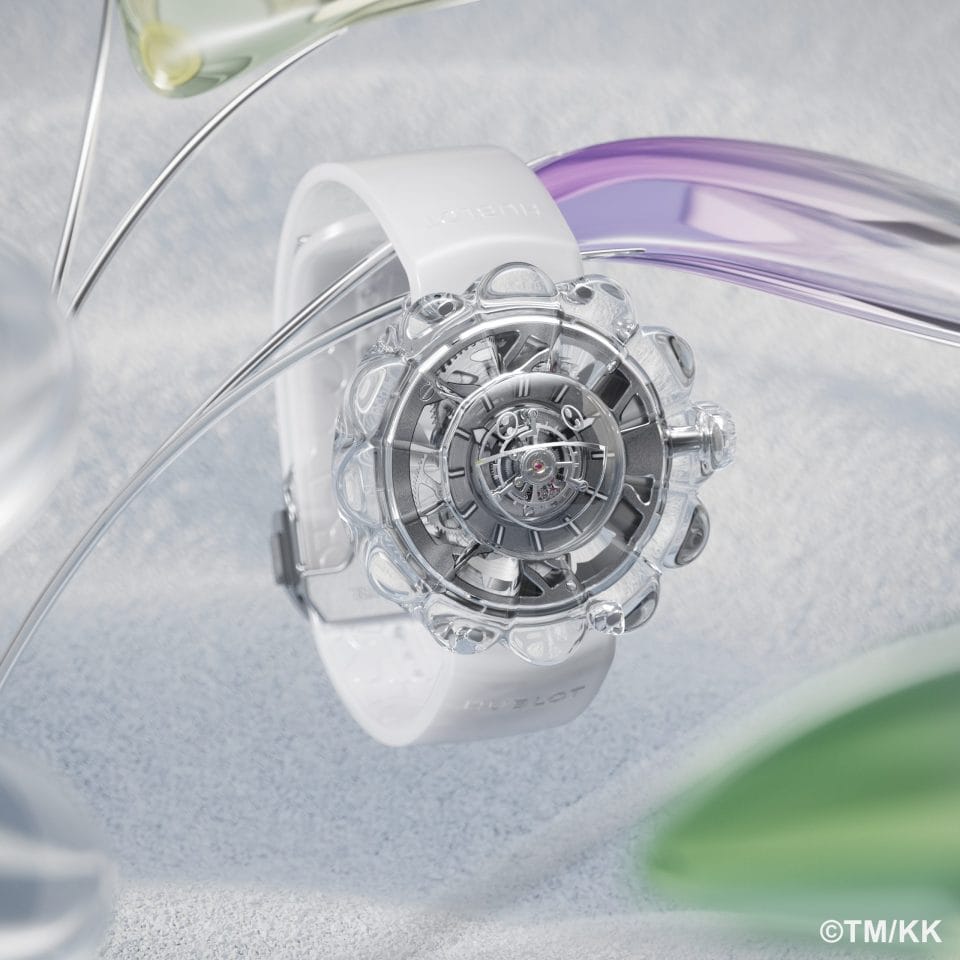 What feeling did the Hublot MP-15 Takashi Murakami Tourbillon Sapphire give you?
What feeling did the Hublot MP-15 Takashi Murakami Tourbillon Sapphire give you?
It’s a dream, a creative dream come true. It looks like a zero-gravity watch, and the feeling it gives is incredible and magical.
What does time mean for you?
I enjoy watching YouTube videos about physics, time, space and the universe. I really like the movie Interstellar, and I always think about how we can transcend all those possibilities. I see the world as a multiverse space instead of being four-dimensional. I’m a physics geek, and that’s how I see time: it’s not linear but multifaceted.
Were you interested in watches before the partnership with Hublot?
A year before I met Miwa-san (from Hublot Japan), I collaborated with Louis Vuitton. Some Japanese magazine titles thought I loved collaborating, and I was invited to a watch fair in Switzerland. I attended all the parties and events, and that’s how I got into the world of watches. I also previously collaborated with independent watchmaker Asaoka-San [from Hajime Asaoka] and realised that the complexity of watchmaking is very similar to art. That’s what got me interested in this world [of watches].
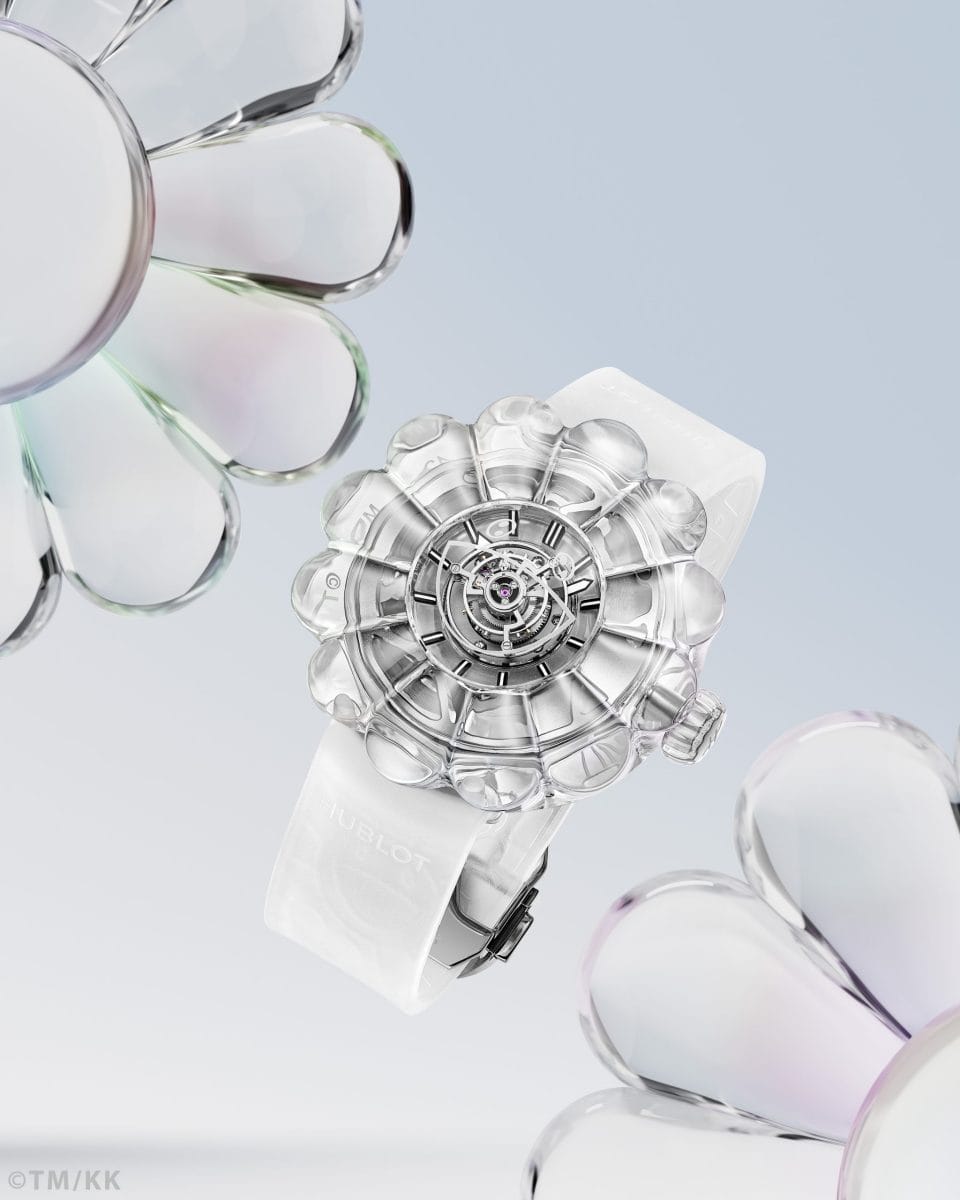 Do you remember your first collaboration with Hublot?
Do you remember your first collaboration with Hublot?
In 2003, I remembered seeing an all-black, sporty-looking Hublot watch at the Hublot party. That was why I wanted a black watch as my first collaboration piece with Hublot. The subsequent designs have gotten more progressive.
What are some of the parallels between watchmaking and your art?
Watches and art pieces can survive over 100 years. That means these pieces retain their quality and stories 100 years ago or into the future.
What stories would you like to tell?
Before I saw the watch yesterday, there were so many things I wanted to say about it, but when I saw the final product, I was left speechless. It can happen when you see something so wonderful and beautiful that you don’t have to say anything; the piece itself tells the story.
 What is one thing you hope your work has achieved in the arts and luxury world?
What is one thing you hope your work has achieved in the arts and luxury world?
I don’t feel like I’ve accomplished anything in that area because any collaboration is brand-led. When I collaborated with Louis Vuitton, Marc Jacobs led that project and Miwa-san led this with Hublot. It’s all based on their vision; a collaboration is born when their vision matches mine. I don’t want to take credit for it because I couldn’t have done this myself.
How do you interpret Hublot’s Art of Fusion?
A year and a half ago, NFTs were very popular, and many people bought into NFT art; Facebook became Meta, and everybody thought the Metaverse was the talk of town. I truly believed in this Metaverse and its significance when I saw my child communicating with his gaming friends through online games. Sometimes, artists tend to stick to the core values and can be very uncompromising. But I think you should always be ready for change, to adapt and fuse it with the style that you’ve already accomplished for yourself. So, for me, fusion is combining what I believe in with something that’s in trend now.
Once you are done with this story, click here to catch up with our December/January 2024 issue.

